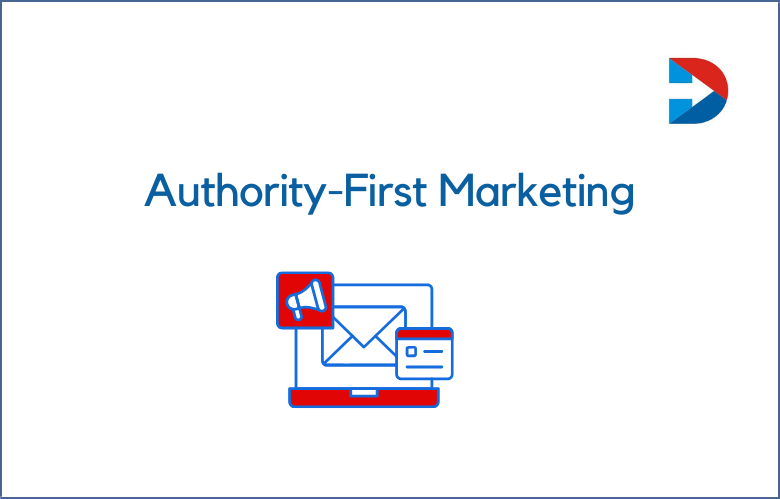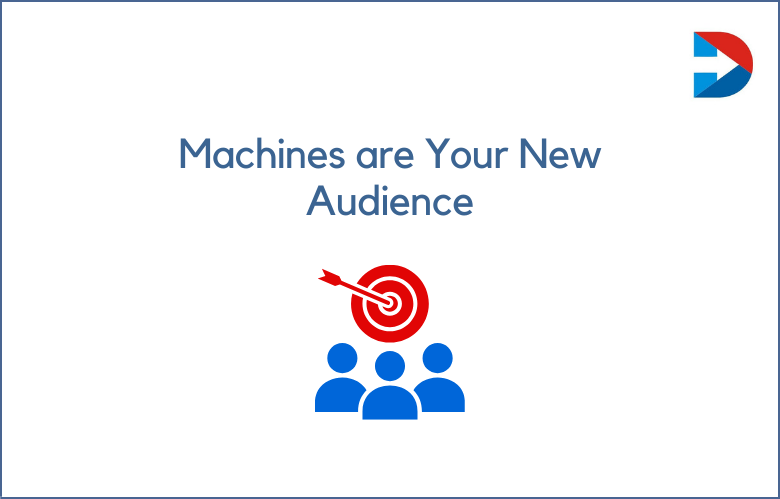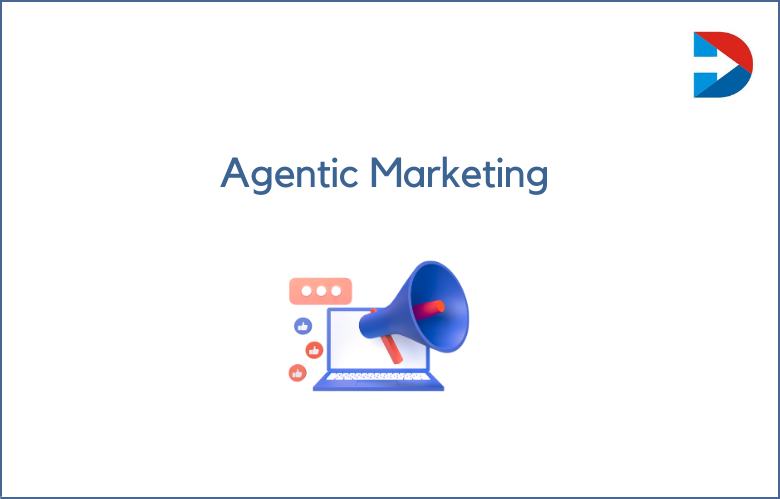
Search Engine Optimization (SEO) is the soul of online marketing. It is optimizing your website and its content according to the parameters set by search engines.
SEO helps improve a website’s visibility and ranking in search engine results pages (SERP). However, tracking and reporting the performance of SEO campaigns can be a tedious and challenging process.
This is why several SEO reporting software tools are available today. We will look closer at the top SEO writing software for clients in 2021.
What is SEO Reporting Software?
SEO reporting software is a tool that helps clients keep an eye on their website’s search engine rankings and performance.
It tracks and analyzes metrics such as keyword rankings, organic search traffic, page speed, and other key performance indicators (KPIs) to provide clients with detailed reports and insights.
Such software helps clients understand their website’s strengths and weaknesses and identify areas for improvement in their SEO strategy or website content.
Improving Client Experience with SEO Reporting Software
Every business today is keen on creating an online presence that attracts new customers and retains them in this competitive digital age.
As an SEO professional, managing your client’s needs can be daunting, especially regarding SEO reporting and analytics. Clients want to see evidence that their investment is paying dividends, which is where SEO reporting software comes in.
This article will discuss how SEO reporting software can help improve client experience and make your job as an SEO professional much more manageable.
Benefits of SEO Reporting Software for Clients
Search Engine Optimization, or SEO, is one of the most effective digital marketing strategies businesses use to increase the visibility and ranking of their websites on search engine results pages.
It is, however, a long-term process that requires continuous monitoring, evaluation, and improvements.
This brings us to the importance of SEO reporting tools for clients. This article will discuss the benefits of using SEO reporting software for clients and how it can help businesses achieve their digital marketing goals.
Comprehensive Reports
With SEO Reporting Software, clients can get comprehensive reports on the performance of their websites. These reports can provide details on website traffic, keyword ranking, and other important SEO metrics.
This information is essential for businesses to track progress and optimize their digital marketing strategy. This way, clients can make informed decisions on where to invest their resources and focus their efforts to maximize their Return On Investment (ROI).
Customizable Reports
With SEO Reporting Software, clients can get customized reports tailored to their needs. For instance, clients can request information on specific metrics, periods, or geographic areas.
This means clients can get reports that provide insights into their market segmentation, customer preferences, and behavior. Through such insights, businesses can adjust their marketing campaigns to target specific audiences and improve conversion rates.
Real-time Reporting
SEO reporting software provides real-time reporting on the performance of a website. This means clients can get up-to-date information on website traffic changes, keyword ranking, and other metrics.
Real-time reporting is essential in helping businesses make timely and informed decisions. With such reports, companies can respond quickly to changes in the market, website traffic, and customer preferences.
Thus, businesses can stay ahead of the competition by adjusting their digital marketing strategy to reflect the changing market.
Improved Communication
SEO reporting software can help businesses improve communication with their clients. Companies can share SEO insights with their clients quickly and effectively with customizable and comprehensive reports.
This means that businesses can communicate the impact of their digital marketing strategy to their clients. By doing so, clients can better appreciate the value of digital marketing and its effect on their business.
More Efficient Use of Time and Resources
SEO reporting software can help businesses save time and resources. With automated reports, companies can eliminate the time-consuming manual reporting process.
This frees up time for businesses to focus on other essential tasks. Moreover, digital marketing agencies can easily use SEO reporting software to manage multiple clients, saving time and resources and improving the efficiency of their operations.
Top SEO Reporting Software Tools
SEMrush
SEMrush is a powerful, all-in-one digital marketing platform that supports businesses and agencies across various activities, including SEO, PPC, content marketing, social media management, and competitive intelligence.
Its robust SEO reporting capabilities make it a top choice for professionals who need to track, optimize, and showcase their performance to clients in a streamlined, data-rich format.
Key Features for SEO Reporting:
Keyword Rank Tracking:
SEMrush allows users to monitor keyword rankings across multiple devices, locations, and languages. You can track fluctuations over time, identify opportunities, and detect keyword cannibalization issues.
Backlink Monitoring & Analysis:
Easily track your backlink profile growth, spot toxic backlinks, assess referring domains, and benchmark your link-building efforts against competitors using SEMrush’s robust backlink audit and analytics tools.
Site Audit & Technical SEO Reports:
With its comprehensive site audit feature, SEMrush scans your website for over 140 technical SEO issues, including crawl errors, HTTPS implementation, broken links, redirect chains, page speed, and mobile usability.
Competitor SEO Analysis:
SEMrush provides side-by-side comparisons with competing domains. You can uncover your competitors ‘ top-performing keywords, traffic-driving pages, backlink sources, and even their advertising strategies.
Traffic Analytics:
Gain insights into organic, referral, paid, and social traffic sources. Understand how users interact with your website and which channels convert best.
On-Page SEO Checker:
Get actionable recommendations for improving specific pages based on current rankings, backlink profile, semantic relevance, and SERP competitors.
Customizable Client Reports:
Using SEMrush My Reports, create branded, white-label SEO reports. Drag-and-drop widgets make it easy to compile visual dashboards showing keyword rankings, visibility trends, traffic, audit summaries, and more. These can be scheduled for automatic delivery to clients in PDF format.
Integration with Google Tools:
SEMrush integrates seamlessly with Google Analytics, Google Search Console, and Google Ads, allowing for deeper data aggregation and enhanced reporting accuracy.
Position Tracking Alerts:
Set up alerts to notify you or your client of ranking changes or competitive movements in real so you can act quickly on SEO opportunities or threats.
Moz Pro
Moz Pro is a trusted, all-in-one SEO platform that offers a wide range of tools designed to help marketers, consultants, and agencies improve search engine visibility and deliver insightful, easy-to-understand SEO reports to clients. Known for its accuracy, usability, and depth of analysis, Moz Pro stands out for businesses looking to blend technical SEO with intuitive client communication.
Key Features for SEO Reporting and Strategy:
Keyword Research & Tracking:
Moz Pro’s keyword explorer allows you to find the best opportunities based on search volume, keyword difficulty, organic CTR, and priority scoring. You can track keyword rankings across multiple devices and locations to monitor performance and spot trends.
Site Audits & Health Monitoring:
Moz Pro automatically crawls your website weekly and identifies SEO issues like duplicate content, missing metadata, broken links, redirect chains, and crawl errors. Each issue includes a priority score and clear recommendations for fixing it.
SERP & Competitor Analysis:
Use Moz’s powerful SERP analysis tools to see who’s ranking on your target keywords, why they rank, and what you can do to outrank them. This is especially helpful for generating competitive insights and reporting them clearly to clients.
Link Building & Backlink Analysis:
Moz Pro’s Link Explorer provides detailed insights into your site’s link profile, including domain authority (DA), page authority (PA), spam score, and anchor text distribution. You can also track lost and newly acquired backlinks.
Customizable & White-Labeled Reporting:
Moz Pro enables agencies to build customized reports tailored to each client’s SEO KPIs. These reports are automated, brandable, and easy to share via PDF or client-access dashboards. You can schedule weekly or monthly deliveries based on campaign timelines.
Local SEO Reporting (Moz Local Integration):
If you manage local businesses, Moz Local (a complementary platform) helps you track and manage listings across major directories, improve local citations, and monitor reviews. Its integration with Moz Pro strengthens reporting for location-specific clients.
Keyword Difficulty & Opportunity Scores:
Moz Pro’s keyword difficulty metric helps prioritize efforts by showing how hard it is to rank for a given term. In contrast, the opportunity score shows which terms offer a favorable balance of demand and competition.
Intuitive User Interface:
Moz Pro is known for its clean, user-friendly dashboards that make it easy to interpret complex SEO metrics. This makes it ideal for SEO teams that need to explain results clearly to non-technical stakeholders.
Resource-Rich Support & Community:
The Moz platform includes access to an extensive SEO learning center, webinars, training guides, and the iconic Moz Blog. This is especially useful for new marketers or agencies wanting to improve reporting explanations.
Ahrefs
Ahrefs is a leading SEO toolset widely recognized for its unmatched capabilities in backlink analysis, keyword tracking, competitive research, and content optimization. It is particularly favored by digital marketers, SEO consultants, and agencies who need data-rich reports to present detailed insights to clients and stakeholders.
With one of the market’s largest and most updated backlink databases, Ahrefs provides granular SEO reporting tools that help you monitor site performance, benchmark against competitors, and uncover growth opportunities in search visibility.
Key Features for SEO Reporting and Analysis:
Advanced Backlink Analysis:
Ahrefs’ Site Explorer is renowned for its extensive backlink data. You can audit your site’s entire backlink profile, track referring domains, detect lost or broken links, evaluate anchor text distribution, and assess backlink quality using domain and URL ratings (DR & UR). This is ideal for link-building reports and monitoring link acquisition campaigns.
Keyword Rank Tracking (Rank Tracker):
Ahrefs lets you monitor keyword rankings across desktop and mobile devices globally or locally. You can track daily or weekly changes, measure visibility percentages, and compare ranking progress against competitors—all from an easy-to-interpret dashboard.
Site Audit Reporting:
The Site Audit tool crawls your website and provides a comprehensive overview of technical SEO issues, including site health score, crawl errors, redirect problems, meta tag issues, duplicate content, internal linking structures, etc. This information is visualized through graphs and scorecards for simple client communication.
Content Gap & Competitor Benchmarking:
With Ahrefs’ Content Gap tool, you can easily show clients which keywords their competitors rank for, but they don’t—making it an essential part of your SEO opportunity reports.
Traffic & SERP Performance Trends:
Ahrefs estimates organic search traffic for any domain or page and displays traffic growth trends, top-performing content, and keyword positions. This allows you to track performance over time and visualize the ROI of SEO efforts in your reports.
Customizable Dashboards & Reporting:
Create tailored reports from the Ahrefs dashboard, including white-label exports in CSV, PDF, or Excel formats. You can highlight KPIs like keyword visibility, DR growth, link velocity, and content rankings, all customizable to each client’s needs.
Competitor Domain Comparison Reports:
Ahrefs lets you stack your domain performance with competitors, comparing backlinks, keyword overlap, content performance, and traffic metrics. These comparison reports are great for executive-level insights.
Top Pages & Content Explorer:
You can identify which pages bring in the most traffic, links, or social shares and include these insights in content marketing reports. This helps shape strategy and validate performance in content-driven campaigns.
Real-Time Alerts:
Set up alerts for new/lost backlinks, keyword movement, or brand mentions and automatically incorporate these changes into reporting cycles. This ensures you stay on top of your SEO landscape and communicate timely client updates.
Intuitive & Shareable Dashboards:
Ahrefs’ dashboards are clean, interactive, and informative. They help clients and stakeholders quickly grasp performance data without needing deep SEO knowledge—perfect for agency reporting meetings or stakeholder presentations.
Google Looker Studio
Looker Studio, previously known as Google Data Studio, is a free, cloud-based data visualization and reporting tool from Google that enables marketers, SEO professionals, and agencies to transform raw data into interactive, real-time dashboards.
It integrates seamlessly with a wide range of data sources—including Google products and third-party tools—making it a versatile solution for comprehensive SEO reporting.
Key Features for SEO Reporting:
Multi-Source Data Integration:
Looker Studio supports direct integrations with Google Analytics, Google Search Console, Google Ads, BigQuery, YouTube Analytics, and third-party connectors (like SEMrush, Ahrefs, or Moz via Supermetrics or Funnel.io). This allows you to centralize all your SEO and digital marketing data in one place.
Customizable SEO Dashboards:
With a drag-and-drop interface, users can create highly tailored reports highlighting metrics such as keyword rankings, CTR, bounce rate, site traffic, conversions, backlinks, and more. Pre-built templates are also available for faster report creation.
Real-Time Data Visualization:
Unlike static reports, Looker Studio dashboards update in real-time, providing clients and teams with the most current insights. This makes it an excellent tool for ongoing campaign tracking and agile decision-making.
Collaboration & Sharing Capabilities:
Looker Studio allows for collaborative editing—similar to Google Docs. Teams can work on dashboards simultaneously, and reports can be shared through live links, embedded into websites, or published with view-only access.
White-Labeling and Branding Options:
While not fully white-labeled out of the box, you can still custom brand your reports by adding logos, custom headers, color palettes, and fonts to reflect your agency or client branding.
Client-Friendly Reporting Interface:
Designed with non-technical users in mind, Looker Studio reports are highly visual and easy to understand, making them ideal for client presentations or stakeholder reviews. You can include graphs, scorecards, heat maps, and comparison tables.
Scheduled Email Reporting:
Reports can be automatically emailed to clients regularly (daily, weekly, or monthly), eliminating the need for manual downloads and ensuring timely performance updates.
Flexible Filtering & Drill-Down Views:
Clients can filter data by device, location, traffic source, or keyword directly within the dashboard, enabling them to explore insights more granularly without editing the report itself.
Template Marketplace & Community Resources:
Google and the SEO community offer a wide range of SEO templates for Looker Studio, including dashboards for technical SEO audits, local SEO, content performance, and keyword tracking.
Free & Scalable:
Unlike many paid tools, Looker Studio is entirely free to use. With virtually no limits on report creation or data visualization, it’s a cost-effective and scalable option for freelancers, in-house marketers, and large agencies.
Raven Tools
Raven Tools is a feature-rich, cloud-based SEO and digital marketing reporting software designed for agencies, consultants, freelancers, and in-house marketers. Known for its ease of use and comprehensive integrations, Raven Tools simplifies the creation of automated, branded SEO reports by pulling data from a variety of connected platforms into a single dashboard.
Its functionality goes beyond traditional SEO metrics to also include social media analytics, PPC tracking, site audits, and competitor research, making it a versatile solution for holistic digital marketing reporting.
Key Features of Raven Tools for SEO Reporting:
Custom Dashboards & Branded Reports:
Raven Tools allows users to build white-label reports and fully customizable dashboards. You can brand them with your agency logo, colors, and custom sections, making them ideal for delivering client-facing updates that look professional and polished.
Multiple Third-Party Integrations:
The platform integrates with essential tools like Google Analytics, Google Search Console, Bing Webmaster Tools, Google Ads, Facebook Ads, YouTube, and Moz, allowing you to pull and consolidate data from various channels into one report.
Rank Tracking & SERP Monitoring:
Track keyword rankings over time across desktop and mobile devices. The rank tracking feature supports geo-targeting and shows ranking improvements, keyword volatility, and competitor comparisons—all visualized for easy reporting.
Website Audits & Technical SEO Insights:
Raven Tools’ Site Auditor scans for over 30 technical SEO issues, including missing metadata, broken links, duplicate content, thin content, mobile issues, page speed problems, and more. Each issue is flagged with recommendations for fixes, which can be included in reports.
Backlink Analysis & Link Management:
You can monitor backlink profiles, evaluate link quality, detect toxic or lost links, and manage link-building campaigns using integration with Majestic SEO or by uploading custom data.
Keyword Research Tools:
Leverage built-in keyword research tools or integrations to discover new keyword opportunities, check search volume and competitiveness, and monitor keyword performance trends—all crucial for content strategy and reporting.
PPC & Ad Campaign Reporting:
Raven Tools supports reporting for Google Ads and Facebook Ads, allowing you to include cost-per-click, conversion rate, CTR, and impression data alongside your SEO KPIs in a unified report.
Social Media Metrics Integration:
Track performance from platforms like Facebook, Twitter, LinkedIn, and YouTube, including audience growth, engagement metrics, and post-level data. Great for agencies offering integrated digital marketing services.
Client Portal Access:
You can provide clients with secure login access to a live dashboard, where they can view real-time performance data, eliminating the need for frequent report exports or manual updates.
Automated Report Scheduling:
Reports can be scheduled to be sent automatically via email on a daily, weekly, or monthly basis. This ensures clients are kept up-to-date without requiring manual intervention.
How AI Can Help in SEO Reporting
In today’s data-driven digital marketing landscape, Search Engine Optimization (SEO) is no longer just about rankings—it’s about delivering measurable impact, performance insights, and actionable recommendations. As the volume and complexity of SEO data grow, Artificial Intelligence (AI) is transforming how SEO reports are generated, interpreted, and utilized.
AI-powered SEO reporting is quickly becoming essential for marketers, agencies, and business owners who want to move beyond static dashboards and into real-time, predictive, and intelligent SEO insights.
1. Automated Data Collection Across Multiple Platforms
SEO professionals often juggle data from Google Analytics, Search Console, SEMrush, Ahrefs, Moz, Screaming Frog, and more. Manually pulling reports from each tool is time-consuming and error-prone.
AI-powered SEO platforms automatically integrate data from multiple sources, aggregate it in real-time, and present it in unified dashboards. This not only improves efficiency but also ensures data consistency across all reporting layers.
2. Intelligent Pattern Recognition & Anomaly Detection
AI is incredibly effective at spotting patterns and anomalies that might go unnoticed by human analysts. It can:
- Detect sudden drops in rankings or traffic
- Identify crawl errors or indexation issues
- Spot irregular backlink changes or toxic link patterns
- Recognize slow-loading pages affecting performance
AI doesn’t just highlight the issue—it often explains why it occurred and suggests what to fix, dramatically reducing troubleshooting time.
3. Predictive SEO Insights
AI uses historical SEO data to forecast future outcomes, helping marketers answer questions like:
- “Which keywords are likely to drop in ranking?”
- “What will my organic traffic look like in 3 months?”
- “How will a content update impact performance?”
This predictive modeling allows for a proactive SEO strategy instead of reactive reporting.
4. Natural Language Generation (NLG) for Reports
Modern AI tools can turn raw data into narrative summaries using Natural Language Generation (NLG).
Instead of clients reading charts and trying to interpret numbers, AI can generate simple statements like:
“Your top 5 keywords improved in average position by 12.5% over the last 30 days, contributing to a 22% increase in organic traffic.”
This makes SEO reports more client-friendly, especially for non-technical stakeholders.
5. Real-Time Alerts and Recommendations
AI systems can monitor websites 24/7 and send instant alerts for critical changes—like deindexed pages, traffic drops, or broken canonical tags.
In addition, AI tools can make strategic SEO recommendations, such as:
- Updating outdated content
- Optimizing underperforming keywords
- Improving internal linking
- Enhancing technical elements like schema or page speed
This leads to faster action, fewer missed opportunities, and ongoing SEO improvement.
6. Dynamic and Personalized Reporting
Every client has different goals—eCommerce brands track conversions, while local businesses focus on map pack visibility. AI-powered tools can customize reports automatically based on:
- Industry
- Business goals
- Historical behavior
- Preferred metrics (e.g., traffic, leads, engagement)
AI enables scalable, personalized reports that would otherwise require extensive manual customization for each client.
7. Enhanced ROI Tracking
AI can help correlate SEO activities with actual business impact. For example, it can:
- Attribute traffic spikes to specific content or backlinks
- Estimate revenue driven by organic search
- Analyze SEO’s role in multi-channel conversion paths
This allows SEO professionals to demonstrate ROI more effectively, strengthening client relationships and justifying marketing budgets.
Conclusion
Choosing the right SEO reporting software for clients is essential to ensure effective communication and collaboration. With the right SEO reporting software, clients can track their SEO performance, identify areas for improvement, and adjust their strategy accordingly.
The above-listed SEO reporting software provides excellent features for clients looking to improve their SEO capabilities.
SEMrush, Moz Pro, Ahrefs, Google Data Studio, and Raven Tools are essential software clients can use to track the success of their SEO campaigns. Clients can compare the features of this reporting software and choose the one that best fits their SEO needs.
Frequently Asked Questions (FAQs)
-
What is SEO reporting software?
SEO reporting software helps marketers and agencies track, visualize, and report SEO performance metrics like keyword rankings, traffic, backlinks, and technical health to clients. -
Why is SEO reporting important for clients?
It helps demonstrate progress, justify investments, and ensure transparency by delivering measurable results aligned with business goals. -
Which are the best SEO reporting tools available?
Popular tools include Looker Studio (formerly Google Data Studio), SEMrush, Ahrefs, Moz Pro, Raven Tools, SE Ranking, and AgencyAnalytics. -
Can SEO reporting tools integrate with other platforms?
Yes. Most modern tools integrate with Google Analytics, Search Console, Google Ads, Facebook Ads, social media, and CRM platforms. -
What metrics should be included in an SEO report?
Key metrics include keyword rankings, organic traffic, backlink profile, page speed, technical SEO errors, and conversion data. -
Are white-labeled reports supported?
Yes. Many tools offer white-label capabilities, allowing agencies to brand reports with their logos, domain, and color schemes. -
Can clients access real-time dashboards?
Yes. Tools like Looker Studio, AgencyAnalytics, and Raven Tools allow password-protected or shareable dashboards with real-time data access. -
How often should SEO reports be shared with clients?
Monthly is the standard, but weekly or real-time reporting is possible based on client expectations and campaign complexity. -
Is it possible to automate SEO reports?
Yes. Most tools allow automated report generation and email delivery on a scheduled basis (daily, weekly, monthly). -
What is the difference between Looker Studio and paid SEO tools?
Looker Studio is free and customizable with integrations, while tools like SEMrush and Ahrefs offer built-in SEO data, competitor insights, and automation features. -
Do SEO tools support multi-client reporting?
Absolutely. Platforms like SE Ranking, Raven Tools, and AgencyAnalytics are designed for agencies managing multiple clients from one dashboard. -
What kind of data visualizations are supported?
Charts, scorecards, tables, time-series graphs, pie charts, and heatmaps are commonly used to visualize trends and KPIs. -
Can SEO reporting tools track competitors?
Yes. Most tools offer competitor tracking for keywords, backlinks, traffic, and domain authority comparisons. -
Are social media and PPC metrics included?
In many tools, yes. You can combine SEO data with PPC and social media insights to deliver a full marketing performance report. -
Can I create report templates for clients?
Yes. Tools allow you to build and reuse custom templates for faster onboarding and consistent reporting across clients. -
Do these tools help with local SEO reporting?
Yes. Tools like BrightLocal and SE Ranking provide location-specific data such as map pack rankings, GMB insights, and local keyword performance. -
Is technical SEO audit data included in reports?
Yes. Most platforms include audit summaries showing issues like crawl errors, broken links, missing tags, and mobile usability. -
What export formats are supported?
Reports can typically be exported as PDF, Excel/CSV, or shared as live URLs or embedded dashboards. -
How secure is client data in these tools?
Leading platforms follow data protection standards and may offer GDPR compliance, encryption, and role-based access controls. -
How do I choose the right SEO reporting tool for my agency?
Evaluate based on your reporting needs, integrations, client volume, white-labeling features, ease of use, pricing, and automation capabilities.



